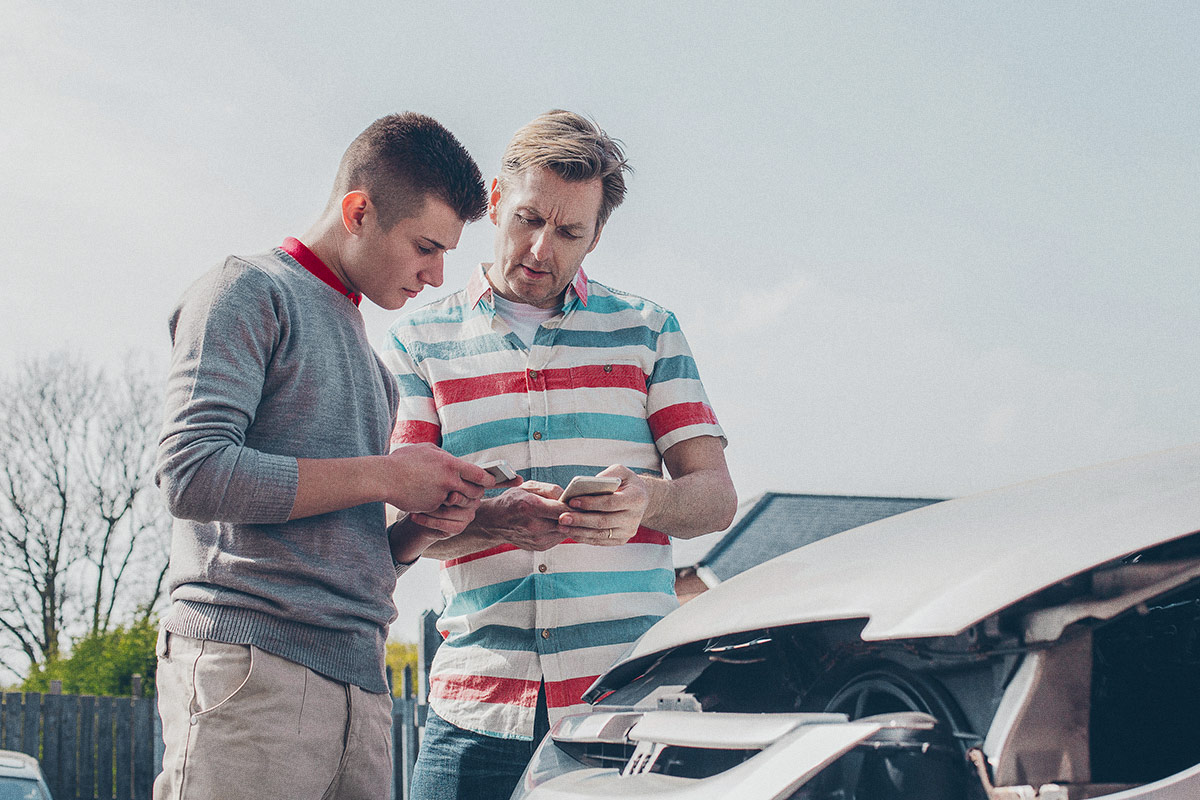
Your Post-Auto Accident Checklist
It can be difficult to focus on the things that need your immediate attention after the complete disruption of an auto accident. However, knowing what to do can help reduce injuries, save lives and ultimately, simplify the claims process.
The following checklist includes 12 important steps to take if you are involved in an accident.
-
If safe to do so, move your vehicle out of harm’s way to prevent further damage, injuries or chain-reaction accidents. If your vehicle cannot be moved, turn on the hazard lights and close the doors. Do not leave the scene of the accident.
-
Check for injuries and call 911. Even if there are no injuries, it’s important to call 911. The police file an accident report which will be handy in case the other driver sues for damages or medical injuries. Also, it’s possible there may be more damage to a vehicle than originally thought. Get the responding officer’s name and badge number and, if they don’t provide a copy of the incident report at the scene, ask how to obtain one.
-
Remain calm. Arguing, venting or losing your temper may unnecessarily escalate the situation.
-
Be courteous to others at the scene. You’ll get more goodwill from others if you treat them with respect. Remember—every person is a potential witness.
-
Be consistent in your version of the accident. Sometimes it’s tempting to embellish or dramatize the details. The simpler the better.
-
Gather information about what happened. Note the road and weather conditions as well as the location and time of day. Provide as much detail as time and circumstances will allow. Do not put off this step—memories fade quickly and your immediate recollection of events could prove critical in handling your claim.
-
Talk to witnesses. If there are any witnesses to the accident, write down their names and contact information.
-
Photograph the accident scene if it’s safe to do so. Capture images from multiple angles, from a distance and up close.
-
Exchange information with the other driver including name, phone number, vehicle license plate number, insurance company and policy number. Be prepared to provide your own information for the police report, as well as the following:
-
Description of the accident
-
Location and time of the accident
-
Damage and injuries
-
Any witness information
-
-
Do not discuss the specifics of the accident with anyone other than the police and your insurance representative. Remain objective. Do not admit fault or accept blame. Don’t discuss the extent of your auto insurance coverage with the other driver.
-
Notify your insurance agent as soon as possible. The longer you wait, the harder it is to remember details.
-
Keep a file with notes and copies of claim forms. Keep track of the name, title and contact information of everyone you speak with during the claims process and document the conversation details. Complete all forms you receive accurately and immediately.
We hope you'll never need these tips. But, if you do, we're here to help. Print this article and keep it in your glove box just in case!
Related Articles

Car Buying-How to Time it Right

